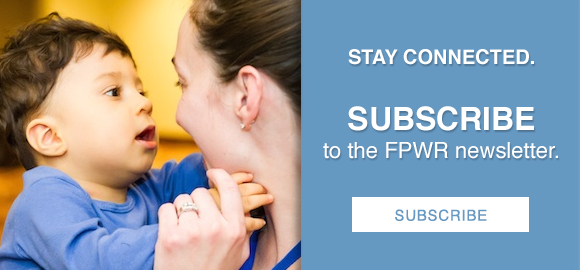At the 2024 FPWR Conference, the session "Growing Up with a Sibling with PWS" offered a heartfelt and detailed look into the experiences of siblings of children with Prader-Willi Syndrome (PWS). Led by Dr. Lauren Schwartz Roth, a researcher and mother, the session shared insights from her year-long qualitative study. Dr. Schwartz’s findings highlight the emotional, social, and practical challenges faced by siblings, as well as the strengths and resilience they develop along the way.
Watch the video below to dive into insights from the 2024 FPWR Conference session on growing up with a sibling with PWS. Short on time? Scroll down and explore specific topics (with timestamps) like challenges, coping strategies, and personal growth.
Why Conduct a Sibling Study on PWS?
Timestamp: [0:07] Dr. Schwartz emphasized how parents often wonder, “How are my other children doing?” Her study addresses these questions, exploring the unique challenges and growth of siblings living with PWS. Prior research revealed higher risks of anxiety and PTSD among siblings, prompting her to examine not only the emotional toll but also positive impacts.
Study Design and Demographics
Timestamp: [1:00] Dr. Schwartz conducted interviews with 25 siblings aged 12 to 50, recruited through social media. Participants were evenly split by gender, with 55% being older siblings. This diversity allowed her to capture perspectives across life stages, from adolescence to adulthood.
Key Findings
Timestamp: [6:33] Emotional Challenges
-
Tantrums and Emotional Outbursts: Surprisingly, the most challenging aspect for siblings was not the food-related behaviors but rather the emotional outbursts and tantrums. Many siblings expressed feeling like they were “walking on eggshells,” fearing upsetting their sibling and trying to avoid triggers. Many siblings described feeling like they were “walking on eggshells.”
-
Rigidity and Repetitive Behaviors: Siblings also found it challenging to handle their sibling’s rigidity, such as difficulty with changes in routine, repetitive questions, and obsessive behaviors. This often created a high-stress environment where siblings felt they had to adapt constantly.
-
Food Issues: For older siblings, food issues were a frequent source of stress. They reported feeling guilty or anxious if their sibling with PWS accessed restricted foods, with some even resorting to hiding snacks or eating privately.
Timestamp: [8:06] Positive Traits of PWS Siblings
Despite the challenges, siblings described their PWS siblings in overwhelmingly positive terms. Words like “friendly,” “strong,” “kind,” and “outgoing” appeared frequently. Many participants admired their siblings’ ability to advocate for themselves, as well as their determination.
Timestamp: [12:54] Impacts on Mental Health
Approximately half of the siblings reported frequent anxiety. Female siblings, in particular, mentioned low moods. Therapy, when provided by professionals familiar with PWS, proved helpful.
Many siblings reported a heightened state of alertness, constantly monitoring their own behavior to avoid triggering their sibling. This hypervigilance often translated into long-term stress, with some expressing feelings of emotional exhaustion.
Practical Recommendations for Families
Timestamp: [16:08]
-
Transparent Communication: Siblings emphasized the importance of open communication about PWS. They expressed a need to be included in family conversations, with age-appropriate explanations that validated their experiences. Share age-appropriate explanations of PWS to reduce confusion. Use clear, simple language tailored to the sibling's age to explain why certain behaviors occur or routines are in place. Keep the conversation ongoing as siblings grow and can understand more.
-
Dedicated One-on-One Time: Siblings valued moments spent alone with their parents, where they could focus on their own needs without the stress of PWS-related routines. Spend intentional, distraction-free time with each child individually. Activities like going for a walk, having a special meal, or simply engaging in their favorite hobby can help siblings feel valued and connected.
-
Empowering Coping Tools: Many siblings were interested in learning techniques for managing their PWS sibling’s behaviors, whether it was understanding how to de-escalate a tantrum or handling food situations with confidence. Equip siblings with practical strategies to handle difficult moments. Role-playing and providing resources, like guides or videos, can help build their confidence.
-
Encourage Personal Hobbies: Support siblings in pursuing their passions and interests. Whether it’s sports, arts, or academics, having "their own thing" fosters a sense of identity and independence within the family.
-
Connect with Peer Communities: Many siblings found validation in meeting others who understand their experience. Facilitate opportunities for siblings to meet others who share similar experiences. Online forums, sibling-specific support groups, or events can help them feel less isolated and provide a sense of validation and understanding.
Supporting Personal Growth
Timestamp: [17:08] Siblings shared that growing up alongside a PWS sibling had shaped them into more empathetic, patient, and responsible individuals. Some noted that these experiences prepared them well for future challenges, and many felt inspired to pursue careers in fields such as healthcare, advocacy, and education.
Advice to Parents from Siblings
Timestamp: [21:26]
-
Be Transparent: Honest communication fosters understanding. Share age-appropriate information about PWS and explain its impact on the family in clear terms. Siblings appreciate being kept in the loop and knowing they can ask questions without judgment.
-
Respect Boundaries: Allow siblings to have personal time and space. Encourage them to pursue their own interests and hobbies, and avoid over-relying on them as caregivers. Acknowledge their need for individuality within the family dynamic.
-
Include Them in Discussions: Early conversations about caregiving roles help siblings prepare for the future. Discuss potential responsibilities openly, but also make it clear that their input and personal goals are valued. This helps siblings feel included without overwhelming them with expectations.
Final Takeaways
Dr. Schwartz concluded the session with an important message: siblings can thrive despite the unique challenges of growing up in a PWS household. By prioritizing open communication, fostering individuality, and building a supportive network, families can help siblings develop resilience and a strong sense of self.
Timestamp: [36:45] Q&A
For more details, watch the full session from the 2024 FPWR Conference.








